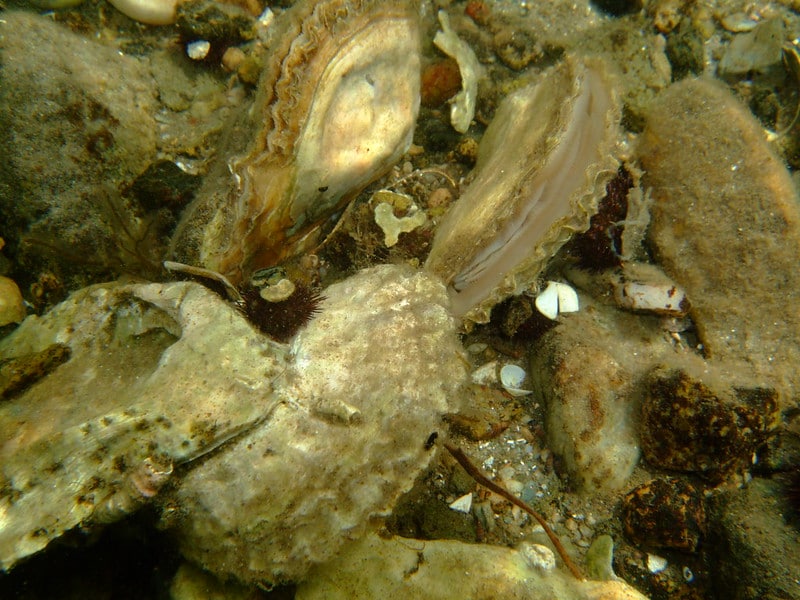4 000 native oysters are being returned to UK waters as part of an ambitious restoration project, spanning coastal regions across England, Scotland and Wales. The Wild Oysters Project, a partnership between ZSL (Zoological Society of London), Blue Marine Foundation (BLUE) and British Marine aims to help restore healthy, resilient coastal waters around the UK by bringing back these ‘ocean superheroes’ from the brink of extinction.
—
The Wild Oysters Project has begun by installing 47 nurseries with 1 300 native oysters underneath marina pontoons in Sunderland Marina and Port of Blyth, North East of England. Partnering with Groundwork North East and Cumbria, along with the Environment Agency North East, local Project Officers will help to care for the newly placed oysters.
You might also like: The World’s First Wildlife Bond Will Launch This Year, Focusing on Rhinos
The first mature native oysters have now been housed in nurseries, a microhabitat acting as a maternity ward to the next generation of oysters, suspended underneath marina pontoons in the North East of England. These oysters will begin reproducing over the next few months, releasing millions of baby oysters, known as larvae, into the ocean. This is the first step in the project’s aim to restore native oysters, increasing wild populations around the British coast and see the return of healthy coastal waters.
Native oysters provide huge benefits to coastal waters by helping to clean seas and acting as an important habitat for marine wildlife. Declining by 95% due to human activities, native oyster populations have continued to decrease since the 1800s, meaning their benefits to the ocean have been lost.
Celine Gamble, Wild Oysters Project Manager, ZSL, says, “Despite their small size oysters are capable of filtering 200 litres of water a day, and will almost immediately begin their important work helping to create cleaner water and increase marine biodiversity in the UK.”
The Wild Oysters project, a three-year ambition, was awarded £1.18m by the Postcode Dream Trust. The Dream Fund, run by Postcode Dream Trust, gives organisations the opportunity to bring ambitious, innovative and collaborative projects to life.
British Marine Environment Executive, James Scott-Anderson, said; “British marinas are enabling the recovery of one of our most threatened species. It is essential that we allow nature the space to recover and grow once again. Using marinas to house oyster nurseries is an innovative use of the space we have available”.
Wild Oysters will be deploying more native oysters around Britain throughout 2021.
Featured image by: Flickr

















